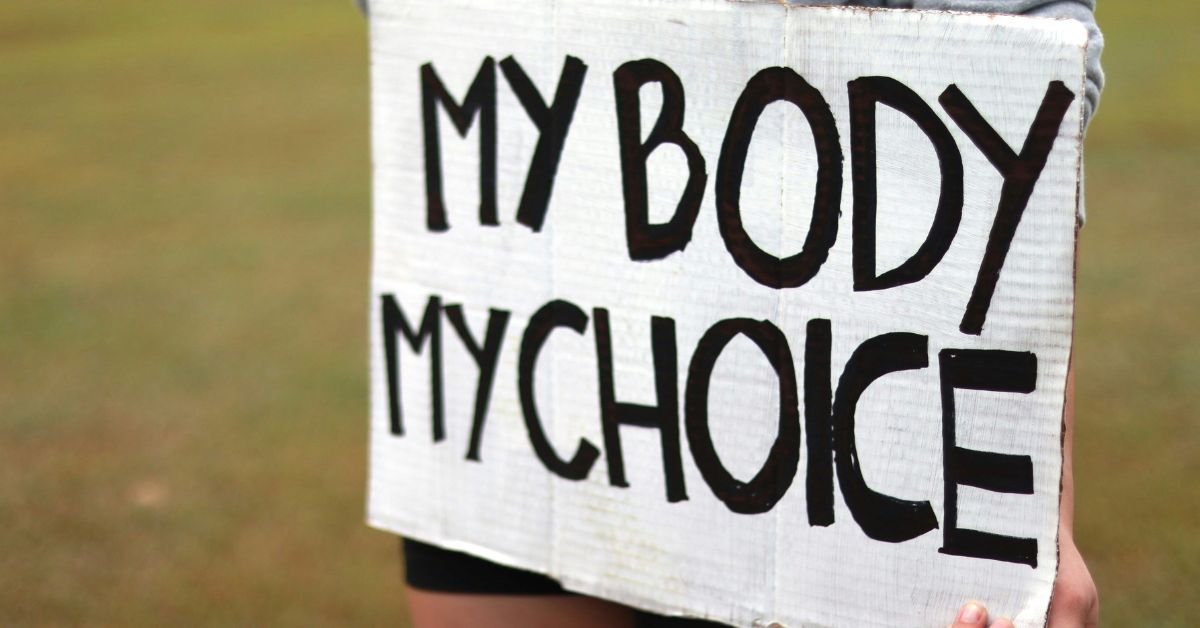Body shaming entails making negative remarks about someone’s physique, whether directed towards oneself or others. This criticism may revolve around various aspects like size, age, appearance, attire, food preferences, or perceived beauty levels.
Alas, body shaming pervades various aspects of society, from casual remarks regarding weight to social media content propagating unattainable beauty ideals, creating an environment that fosters negative body image.
Effects of Body Shaming on Mental Health
Whether it is targeted directly at individuals or aimed at others, toxic shaming can have detrimental effects on mental health. It breeds insecurity, encourages unhealthy behaviors, and perpetuates the notion that our worth is linked to our physical appearance. Furthermore, it plays a role in the development of eating disorders, depression, anxiety, low self-esteem, body dysmorphia, and a pervasive sense of body dissatisfaction.
Understanding the Origins of Body Shaming
Explore the origins of body shaming and its deep-rooted presence in our societal norms. Discover ways to challenge and unlearn these damaging behaviors to cultivate a more body-positive perspective.
Body Shaming in Our Culture
Within our contemporary society, there is a prevailing belief that slender bodies are intrinsically superior and healthier compared to larger bodies. However, this notion has not always been the norm throughout history. In earlier eras, such as before the 1800s, artworks and portraits often depicted a reverence for plumpness.
The perception of being overweight was once associated with affluence and abundance of food, while thinness symbolized poverty. Amy Erdman Farrell, the author of “Fat Shame: Stigma and the Fat Body in American Culture,” traces the transition from celebrating heavier bodies to favoring smaller figures, which began in mid-nineteenth century England coinciding with the emergence of the first diet literature.
Farrell highlighted that the preoccupation with diets and physical appearance predominantly targeted women. Sabrina Strings, in her book “Fearing the Black Body: The Racial Origins of Fat Phobia,” asserts that fatphobia has roots in colonialism and race.
The Merriam-Webster Dictionary credits journalist Philip Ellis with the earliest documented use of the term “body shaming.”
Who Are the Targets of Body Shaming?
Body shaming typically targets body size, although any negative remarks regarding any aspect of someone’s body qualify as body shaming.
Here are the different reasons why individuals may become victims of body shaming.
Weight
Body shaming frequently occurs due to weight-related issues. Individuals may face criticism for being perceived as either “too big” or “too thin.” Negative remarks about someone’s weight, such as labeling them as “fat,” constitute fat-shaming. This derogatory behavior includes comments like “They’d be more attractive if they lost weight” or “I bet they needed an extra airplane seat.” Men also experience body shaming, often labeled with a “dad bod” derogatory term.
Thin individuals are not exempt from weight-related criticism and may encounter skinny-shaming. Remarks like “They seem like they don’t eat” or “They appear to have an eating disorder” are forms of skinny-shaming.
Studies indicate that fat shaming has detrimental effects and can lead to weight gain. It is associated with poor metabolic health, increased stress levels, and a higher risk of binge eating.
Body Hair
Hair can be found growing on various parts of the body such as the arms, legs, private areas, and underarms for most individuals, excluding those with specific health conditions. Despite this, there exists a common misconception that women are expected to remove all body hair to adhere to societal standards of femininity.
Instances of body hair shaming include derogatory comments towards women sporting underarm hair, labeling them as “beastly,” or pressuring them to shave as a means of conforming.
Attractiveness
Referred to as “pretty-shaming,” the act of bullying or discriminating against individuals based on their attractiveness is a common occurrence. Furthermore, individuals may also face bullying for being perceived as unattractive, a phenomenon known as “lookism.”
Lookism pertains to bias or discrimination directed towards individuals deemed physically unappealing or not meeting societal standards of beauty.
An instance of pretty-shaming includes the stereotype that attractive women are less likely to secure roles of authority in job positions. On the other hand, lookism manifests when unattractive individuals encounter limited opportunities.
Food
Food-shaming typically revolves around body size, where comments about a person’s food choices are made. An example of this is when someone remarks on what another person is eating or not eating, constituting food-shaming. For instance, stating, “They look like they don’t need to be eating that,” exemplifies food-shaming.
You may also engage in self-food-shaming, such as saying, “I’m so overweight, I shouldn’t indulge in this slice of cheesecake.”
Clothing
The 1980s witnessed the popularity of spandex apparel, accompanied by the mantra “Spandex is a privilege, not a right.” This slogan implied that only individuals with the “ideal” body shape could wear spandex garments, showcasing a form of clothing discrimination.
In more recent times, the founder of Lululemon faced backlash for his insensitive remarks that bordered on fat-shaming, suggesting that certain women’s bodies were incompatible with the brand’s clothing.
Age
Ageism, also known as age-shaming, refers to discrimination or bullying based on a person’s age, often targeting the elderly or older individuals.
An example of ageist behavior in the context of body shaming could be saying, “They’re too old to wear that much makeup.” Similarly, news articles that criticize celebrities for appearing “bad” or “old” without makeup also contribute to age-shaming.
Criticizing someone’s wrinkles or loose skin is another common form of body-shaming.
Hair
In the Western society, there has been a historical emphasis on smooth, glossy, straight hair as the epitome of beauty. Consequently, hair with waves, curls, or different textures has often been deemed less desirable, a phenomenon known as texture-shaming.
One common instance of texture shaming is the backhanded compliment, “They’re so brave to wear their hair natural.” While this may seem positive, it actually carries a negative connotation. It suggests that the individual’s natural hair is outside the societal norm, implying that they are courageous for embracing their hair in its authentic form.
Furthermore, bald-shaming is another issue faced by individuals of all genders who experience hair loss, whether from receding hairlines or thinning/balding scalps.
Why is it Important to End Body Shaming?
Body shaming goes beyond just being unkind—it negatively impacts mental well-being by perpetuating unhealthy beauty ideals and undermining self-confidence. Various harmful outcomes stem from this detrimental behavior:
There are also other mental health issues linked to body shaming that should be noted:
If you are experiencing suicidal thoughts, reach out to the National Suicide Prevention Lifeline at 988 for assistance from a trained counselor. In case of emergencies, dial 911 immediately.
For additional mental health support services, refer to our National Helpline Database.
How to Embrace Body Inclusivity
Body shaming is unfortunately prevalent, but resisting the urge to participate in it is crucial. Opting not to engage in body shaming is not only compassionate towards others but also beneficial for your own well-being. Consciously avoiding various forms of shaming can have a positive impact on mental health.
Moreover, in addition to refraining from body shaming, cultivating body inclusivity is essential. This involves promoting acceptance and appreciation of diverse shapes and appearances, prioritizing health over size or weight, and recognizing and honoring the human body for its capabilities and functions.
Below are some strategies to help you combat body shaming culture.
Stop Talking About Other People’s Bodies
It may be socially acceptable for individuals to ridicule and body-shame others, but you are not obligated to approve, engage in, or endure such remarks or behaviors.
Considering that you wouldn’t want this directed at you, recognizing that it can have serious consequences for those on the receiving end is crucial.
Next time you feel inclined to comment on someone’s body hair, size, or any other physical feature, pause. Instead, why not focus on finding something positive to say to them?
Since they have grabbed your attention, use this as an opportunity to highlight a favorable quality. For instance, offering a compliment like “I like your smile” is a way to acknowledge someone without resorting to negative body comments.
Consider implementing the following measures:
Learn About Body Neutrality
Body neutrality, as promoted by The Enlightened Mind, offers various mental health advantages. It involves accepting bodies without passing judgment, whether it’s your own body or others’. This practice emphasizes appreciating the functional aspects of bodies, which can enhance one’s body image, promote a healthier relationship with food, and increase self-esteem.
Change Your Self-Talk About Your Body
In a society that often focuses on our flaws and areas for improvement, it can be challenging to speak positively about our own bodies. However, shifting to a more positive self-talk can be beneficial for our well-being. Moreover, it sets a positive example for others and prevents harm.
By consciously practicing positive self-talk about ourselves and our bodies, as well as acknowledging and appreciating qualities in ourselves and others, we can enhance our empathy, compassion, and relationships with others and ourselves.
Body Shaming: Avoid Negative Self-Talk
Engaging in negative self-talk, such as saying “I feel so fat today,” can be harmful as it passes judgment on individuals based on their appearance. This type of language can be hurtful, especially to those who may feel insecure about their bodies.
While it may not be easy to maintain positive thoughts all the time, you can express your feelings in a more compassionate way. For instance, instead of body-shaming yourself, consider confiding in a friend by sharing something like, “My pants feel tighter than usual today, and it’s affecting my self-esteem.”
By reframing your self-talk in a supportive manner, you not only avoid potentially harmful comments but also foster deeper connections and trust in your relationships.
Speak Up
If you have taken steps to combat body-shaming towards yourself and others, that’s excellent! However, there is more work to be done.
Whenever you witness individuals causing harm, it is crucial to speak up—assuming it is safe for you emotionally and physically.
If you notice someone making derogatory remarks about another person’s body, whether related to their attire, age, or size, you can gently inform them that commenting on others’ bodies is unkind. If this behavior is recurring among friends or family, you can address it more broadly, expressing that their way of discussing bodies is hurtful to you and others.
Although body shaming is widespread, you can take steps to cease perpetuating it and contribute to healing its detrimental impacts by promoting body positivity within yourself and your community.
The Impact of Weight Stigma on Health
Weight stigma, highlighted in various studies, is associated with negative consequences on both physical and mental health. The Enlightened Mind acknowledges the detrimental effects of fat shaming and lookism on individuals and society as a whole.
Fat Shaming and Health
A study published in CMAJ discusses how fat shaming can exacerbate health issues, contributing to making individuals sicker and heavier. The findings emphasize the need to address weight stigma to promote holistic well-being.
Gender-Specific Effects of Lookism
Research in the Zeitschrift für Psychologie journal explores the impact of leader attractiveness and leadership style on followers’ trust and loyalty. The study delves into the gender-specific effects of beauty bias, shedding light on how lookism influences professional dynamics and relationships.
Career Consequences of Lookism
The Behav Sci (Basel) publication delves into the career perspective implications of lookism climate and workplace incivility. The study underscores how lookism acts as a leak in the career pipeline, affecting individuals’ professional growth and opportunities.
Weight Shame and Mental Health
Another study published in the International Journal of Environmental Research and Public Health examines the relationship between weight shame, social connection, and depressive symptoms in late adolescence. The research sheds light on the psychological impact of weight stigma and social interactions on mental well-being.
The Role of Body Shaming and Weight Bias in Eating Disorders
A study by Cerolini et al. (2024) delved into the potential impact of body shaming and internalized weight bias on the development of eating disorders among adolescents.
Body Shaming: Weight Self-Stigma and Quality of Life in Women
Palmeira et al. (2016) explored the influence of weight self-stigma on the quality of life of women with overweight and obesity, comparing differences between binge eaters and non-binge eaters.
Body Dissatisfaction and Self-Esteem in Adolescents
Research conducted by van den Berg et al. (2010) examined the association between body dissatisfaction and self-esteem in adolescents, highlighting similarities across various factors like gender, age, weight status, race/ethnicity, and socioeconomic status.
For further insights into body shame, Gilbert and Miles (no date provided) introduced conceptualizations, research findings, and treatment approaches in their work titled “Body Shame: Conceptualization, Research, and Treatment.”
Author Bio: Ariane Resnick, CNC, is a mental health writer, certified nutritionist, and wellness advocate committed to promoting accessibility and inclusivity in the field.


